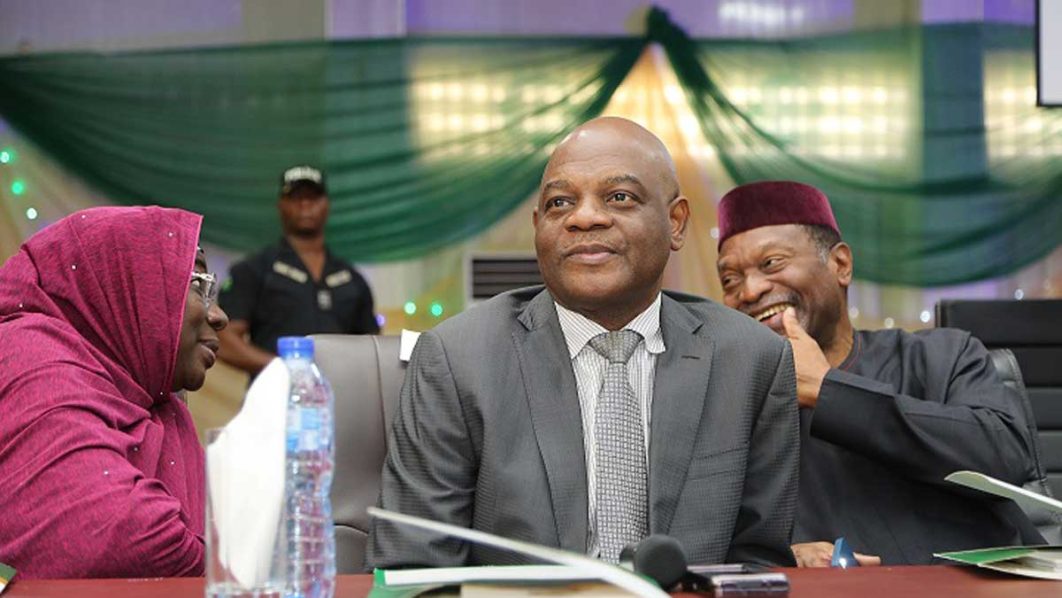
Worried by the state of tertiary institutions in Nigeria, the Executive Secretary, Tertiary Education Trust Fund TETFund, Arc. Sonny Echono, has again, called for their repositioning and revitalization to enable them compete favourably on the global stage.
Echono, who spoke recently on the occasion of 60th anniversary celebration of National Universities Commission (NUC), said the occasion was a veritable platform for stakeholders, not only to applaud the phenomenal growth in the sector, from five universities in 1962 to the current 220, but also to review its many achievements and challenges with the view to charting the right course for the future.
He expressed worries that relying heavily on limited government funding has kept Nigerian public universities struggling to meet their costs or diversify their revenue streams.
“Hence, the recurring calls for their repositioning and revitalization to enable them compete on the global stage. In Nigeria, public universities are funded majorly by government, taking less than 10 per cent of the federal budget and even less at the states’ level.
“The public universities typically do not charge tuition fees, (although many state institutions have been forced to do so) and charge only a fraction of the full economic cost for services such as power, water supply, cleaning and waste disposal.
Accepting that though, the National Policy on Education provides that basic education, which is seen as a fundamental right of every citizen, should be free and compulsory in the country, the tertiary education, which provides a full range of learning options and opportunities is an investment with lifelong returns to the individual.
“Increased social demand for tertiary education in Nigeria and the desire of the country to participate in the knowledge economy have generated the need for greater investment in tertiary education through sustainable funding. But the question is, where will the funds for the needed investments come from? He asked.
Speaking on the theme of the day – “Sustainable Funding of Tertiary Education in Nigeria”, the Executive Secretary held that it was one of the burning issues of the moment. According to him, “a higher education is believed to generate higher level of returns on investment for a longer period as well as promote social cohesion and crime reduction.
“Although tertiary education alone will not make development happen, it is instructive that development in this knowledge era cannot happen without tertiary education”, he stated.
Adding: “The rapid expansion of higher education system, particularly over the last few decades, coupled with the re-occurring global economic crisis and fiscal stringency arising from the structure and poor management of the economy, has affected the funding of tertiary education institutions in Nigeria.
This challenge, Echono noted, has worsened the endemic problem of poor quality of graduates, overcrowding in classrooms, outdated curricula and deteriorating facilities.
“Others include high students-lecturer ratio, high ratio of non-teaching staff to teaching staff, inadequate motivation of academic staff, inability to attract academics from across the globe and neglect of other essentials such as library, educational materials and complimentary facilities.”
Echono also posed certain questions such as where the tertiary education fits in, especially in terms of national strategy for socio-economic development; what the policy goals for tertiary education in Nigeria are; the role of the government in a diversified tertiary education system as well as the desirable limit of government expenditure on education.
Other pertinent questions include how much infrastructure the government is able to fund and maintain in tertiary institutions; the role of government in research and innovation and the funding strategy towards achieving it; how student’s financing system can be developed with due consideration for equity as well as whether the private sector would be willing and able to invest in public tertiary institutions.
He maintained that the incessant industrial actions over the last few decades by various staff unions over poor funding have further heightened the need to explore innovative, sustainable funding regime for tertiary education in the country.
“This implies rethinking stakeholders’ involvement in education financing to secure a qualitative and functional tertiary education system, which is an essential tool for sustainable development.”
Echono’s take was that a new model of sustainable funding for tertiary education in Nigeria was needed.
Echono canvasses repositioning of nation’s higher education for global competition as NUC turns 60

Executive Secretary, TETFund, Arc. Sonny Echono (middle), flanked by the former Minister of Budget and Planning, Udoma Udo Udoma (right) and former Minister of Education, Prof Rukayat Ahmed Rufai, during the 60th anniversary of National Universities Commission (NUC) and the official unveiling of the CCMAS book publication in Abuja.
Executive Secretary, TETFund, Arc. Sonny Echono (middle), flanked by the former Minister of Budget and Planning, Udoma Udo Udoma (right) and former Minister of Education, Prof Rukayat Ahmed Rufai, during the 60th anniversary of National Universities Commission (NUC) and the official unveiling of the CCMAS book publication in Abuja.


